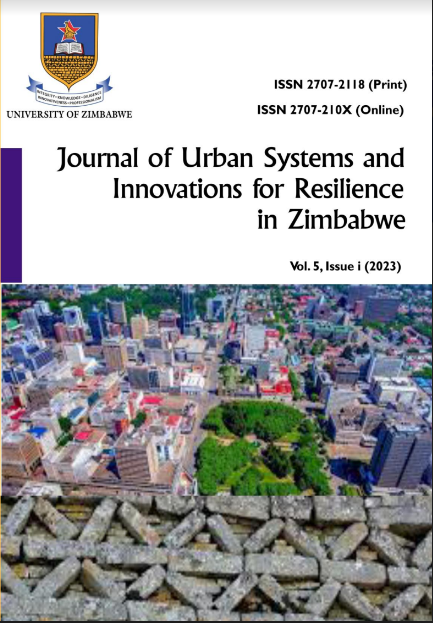The Political Economy of Devolution and Post-2013 Service Delivery in Urban Zimbabwe
Keywords:
Politics, fiscal decentralisation, urban services, power, elite captureAbstract
Advocates of devolution make much of its supposed urban services delivery ‘dividends,’ a stance that is often narrowly founded but
untroubled. Critics of this argument, while acknowledging the potential benefits, suggest that attention to the political economy
under which devolution operates is crucial. Precisely, the political economy critique is that urban service delivery outcomes are
contingent on the political economy context. Zimbabwe's devolution and decentralisation policy identifies improved service delivery in
urban settlements as one of its objectives, but this has not been testified by realities on the ground post-2013 Constitution. The article applies a political economy framework to understanding the dynamics of devolution in Zimbabwe. Using literature and
government documents review, as well as key informant interviews; the political economy of contemporary Zimbabwe devolution, as well as urban services delivery outcomes, are analysed in this article. Our findings indicate that politics, misallocation of economic resources, graft and corruption have largely conspired to stunt urban councils’ ability to deliver services. Devolution has been characterised by the control of resources and decision making by the central government that has often usurped urban councils’ role in service delivery. The article recommends needed political and public sector reforms for improvement in service delivery in urban Zimbabwe, as part and parcel of a redesign of the devolution model in use.




